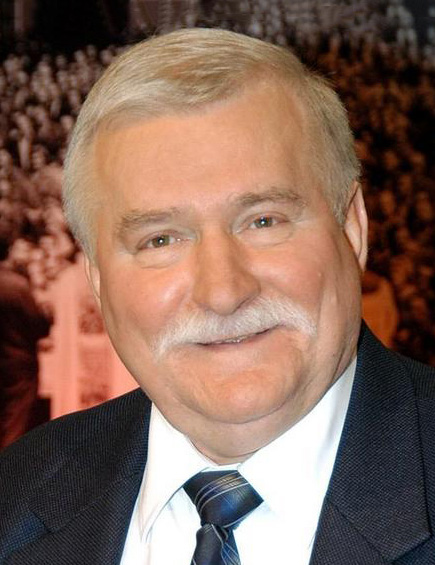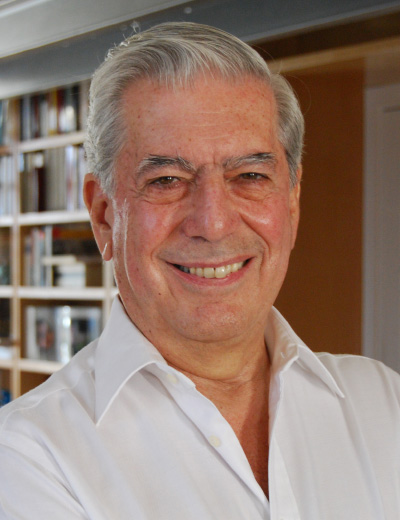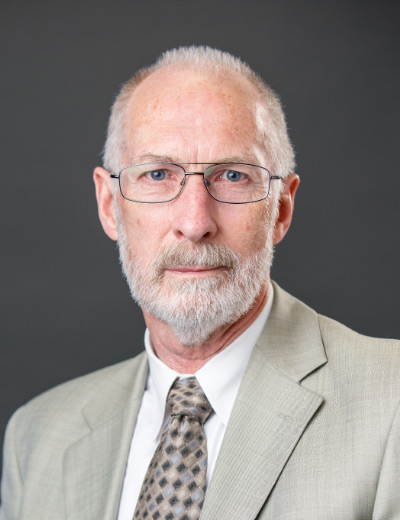 |
 25th Anniversary Dinner Presentation of the Alexis de Tocqueville Awards |
|||
| When: Tuesday, 15 November 2011 |
Where: The Ritz-Carlton San Francisco, CA |
|||
On November 15, 2011, Nobel Peace Prize Laureate and former President of Poland, Lech Wałęsa, Nobel Laureate Mario Vargas Llosa, and Dr. Robert Higgs were honored at the Independent Institute’s 25th Anniversary Gala Reception and Dinner. Each honoree received the Alexis de Tocqueville Award in recognition of their exceptional contributions to humanity in advancing the ideas and ideals of individual liberty, entrepreneurship, personal responsibility, civic virtue, and the rule of law.
Lech Wałęsa—the former President of Poland, world-renowned Nobel Peace Prize laureate, and human rights activist—was the cofounder and leader of the Polish trade union Solidarity (Solidarnosc). He helped lead the popular movement to challenge the totalitarian grip of communism in Poland, which ultimately sparked uprisings across Eastern Europe and led to the collapse of the Soviet Union and the transition to a free-market economy. He is the recipient of numerous awards including the European Human Rights Prize, Eisenhower Medallion, Liberty Medal, Premio Galileo, Grand Cross of Legion of Honour, National Order of the Southern Cross, Order of Merit of the Italian Republic 1st Class, International Democracy Award, Knight with the Collar of the Order of Pius IX, Presidential Medal of Freedom, Knight Grand Cross of the Most Honourable Order of the Bath, and thirty honorary doctorates from universities around the world.
UPDATE: Under a new travel embargo by his doctors for health reasons, President Wałęsa will now accept his award and give an exclusive interview for Gala attendees by video.
UPDATE: Under a new travel embargo by his doctors for health reasons, President Wałęsa will now accept his award and give an exclusive interview for Gala attendees by video.
The world-acclaimed novelist, politician, journalist, and essayist Mario Vargas Llosa is the recipient of the 2010 Nobel Prize in Literature "for his cartography of structures of power and his trenchant images of the individual's resistance, revolt, and defeat." A Marxist in his youth, Mr. Vargas Llosa broke with socialism and embraced the ideas of Karl Popper, Isaiah Berlin and F. A. Hayek in supporting free and open societies, and subsequently ran for President of Peru in 1990, barely losing. A member of the Royal Spanish Academy, he is the author of 27 books and 9 plays. He has also received the National Book Critics Award (twice), Miguel de Cervantes Prize, Leopoldo Alas Prize, Premio Planeta, St. Louis Literary Award, Rómulo Gallegos Prize, Peruvian National Prize, Critics’ Annual Prize for Theatre, Prince of Asturias Prize, and Irving Kristol Award, and in 2010, he was decreed by King Juan Carlos I to become the 1st Marquis of Vargas Llosa.
Having pioneered an entire new understanding of individual liberty, economic welfare and the nature of government power, the economist and historian Robert Higgs is Senior Fellow in Political Economy at the Independent Institute and Founding Editor of the quarterly The Independent Review: A Journal of Political Economy. Dr. Higgs’s many path-breaking books include Crisis and Leviathan (Oxford University Press); Depression, War, and Cold War (Oxford University Press); and Competition and Coercion (Cambridge University Press). He is the recipient of the Friedrich von Wieser Memorial Prize, Thomas Szasz Award, Lysander Spooner Award, and Gary Schlarbaum Award, and a festschrift in his honor, Government and the American Economy: A New History, has been published by the University of Chicago Press.
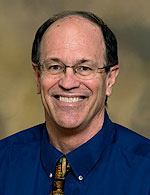
Price V. Fishback Thomas R. Brown Professor of Economics, University of Arizona; Research Associate, National Bureau of Economic Research; and Co-Editor, Journal of Economic History
|
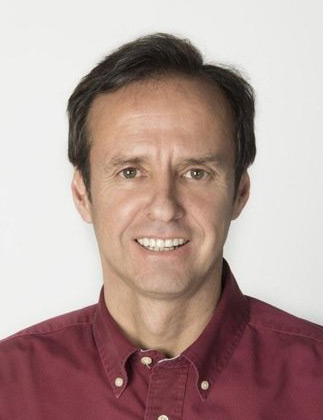 Jorge Quiroga Former President of Bolivia and former Bolivian Vice President, Minister of Finance and Under-Secretary of Public Investment and International Cooperation.
|

Yuri Yarim-Agaev Key member of the Moscow Helsinki Group with Andrei Sakharov; Founder, Center for Democracy in the USSR; Co-Founder, Democracy and Independence (with Vladimir Bukovsky).
|
![]()
| Leszek Balcerowicz
Former Deputy Prime Minister and Finance Minister, Poland
Sir Richard C.N. BransonFormer Chairman, National Bank of Poland Founder and Chairman, Virgin Group Ltd.;
James M. Buchanan
Chair, The Elders Foundation Nobel Laureate in Economic Sciences;
Jimmy Carter
Distinguished Professor Emeritus, George Mason University 39th President of the United States;
Ronald H. Coase
Nobel Peace Prize Laureate Nobel Laureate in Economic Sciences;
Robert A. Conquest, CMG, OBE
Clifton R. Musser Professor Emeritus of Economics, University of Chicago Law School Research Fellow, Hoover Institution, Stanford University;
Freeman J. Dyson
Author, The Great Terror and The Harvest of Sorrow Professor Emeritus, Institute for Advanced Study and
Lord Griffiths of Fforestfach
Princeton University; Templeton Prize Laureate Vice Chairman, Goldman Sachs International
Carly S. Fiorina
Former Head, Prime Minister’s Policy Unit, United Kingdom Former Chairman and Chief Executive Officer,
Robert W. Fogel
Hewlett-Packard Company; Chair, One Woman Initiative Nobel Laureate in Economic Sciences;
Vicente Fox Quesada
Charles R. Walgreen Distinguished Service Professor of American Institutions, University of Chicago Former President of Mexico;
Andy A. Garcia
Former President, Coca Cola Mexico Founder and President, CineSon Productions Inc.;
James J. Heckman
Golden Globe Award Winner and Academy Award Nominee Nobel Laureate in Economic Sciences
Lord Howe of Aberavon
Henry Schultz Distinguished Service Professor, University of Chicago Former Deputy Prime Minister, Chancellor of the Exchequer, Foreign Secretary, and
Mart Laar
Leader of the House of Commons, United Kingdom Minister of Defense and former Prime Minister,
Republic of Estonia |
Antonio Martino
Former Minister of Foreign Affairs and Minister of Defense, Italian Republic
Daniel L. McFadden
Nobel Laureate in Economic Sciences;
Ron Paul, M.D.
E. Morris Cox Professor of Economics, University of California, Berkeley Member, U. S. House of Representatives;
Edmund S. Phelps
Chairman, House Financial Services Subcommittee on Domestic Monetary Policy and Technology Nobel Laureate in Economic Sciences;
Jorge Quiroga
McVickar Professor of Political Economy and Director, Center on Capitalism and Society, Columbia University Former President, Vice President, and Minister of Finance,
Jehan Al Sadat
Republic of Bolivia Former First Lady of Egypt
Thomas C. Schelling
Founder, Arab-African Women’s League Nobel Laureate in Economic Sciences;
Thaddeus N. Taube
Distinguished University Professor, University of Maryland Honorary Consul, Republic of Poland
Charles H. Townes
Chairman, Taube Philanthropies President, Koret Foundation Nobel Laureate in Physics; Templeton Prize Laureate;
Desmond M. Tutu
University Professor Emeritus, University of California, Berkeley Nobel Peace Prize Laureate;
Kallistos Ware
Archbishop Emeritus of Cape Town; Former Chairman, of Truth and Reconciliation Commission, Republic of South Africa Metropolitan Archbishop of Diokleia,
Lord Sir Arthur George Weidenfeld
Ecumenical Patriarchate of Great Britain; Fellow, Pembroke College, Oxford University Founder and President,
John C. WhiteheadWeidenfeld Institute for Strategic Dialogue; Former Chairman, Ben Gurion University of the Negev 9th U.S. Deputy Secretary of State
Elie Wiesel
Former Chairman, World Trade Center Memorial Foundation Former Chairman, Harvard Board of Overseers Nobel Peace Prize Laureate;
Founding Chairman, United States Holocaust Memorial Council |
|||
|
||||
![]()
|
Robert W. Alspaugh
Former Chief Executive Officer
William K. Bowes, Jr.
KPMG International Founding Partner, U.S. Venture Partners
John M. Bryan
Managing Partner, Bryan Partners
Charles Crocker III
Chairman of the Board and Chief Executive Officer,
Crocker Capital, Inc. |
Timothy C. Draper Founder and Managing Director,
Robert W. GalvinDraper Fisher Jurvetson Associates Chairman Emeritus, Motorola, Inc.
Philip HudnerOf Counsel, Botto Law Group LLP
John M. Templeton, Jr., M.D.President and Chairman, John Templeton Foundation
|

|
• Mary Cunningham Agee • Thomas E. Bailard • Emily J. G. Bonavia • Professor Donald J. Boudreaux • Professor Julio Harold Cole • Gilbert I. Collins • Edward J. and Nancy R. Connor • Honorable John D. Dingell • Charles R. Disque, Esq. • Susan Solinsky Duryea and Paul Duryea • Professor Price V. Fishback • Robert W. Garthwait, Sr. • Ann E. Garvey • John Hagel III, Esq. • Gregory J. Hampton, Esq. • Sally and Fred Harris • Suzanne L. Haynes and Robert Erving • Martha Hertelendy • Rev. Theodore M. Hesburgh, CSC • Paul J. Hill • Kimberly and Ray Hines • William D. Hoagland • Amy Wender Hoch and John Hoch • Peter A. and Jeanine Howley • Harry P. Hutchens • Professor Michael C. Jensen • Charles B. Johnson • Eric L. Johnson • Franklin P. Johnson, Jr. • Michael L. and Lindy Keiser • Harold R. Kellman • Christopher Kerosky • Michael and Letitia Kim • John G. Lilienthal • Wade Loo |
• Charles F. Lowrey • David and Catherine Markwell • Stephen T. McClellan • Mary K. McEachron, J.D. • Dr. Thomas Gale Moore • Dr. Colin Murdoch • Dr. Steven W. O’Heron • William F. O’Keeffe, Jr. • Zack and Joy Pearlman • George H. Pfau, Jr. • Barbara Pivnicka • Dick and Renie Riemann • Dr. William J. Rutter • Dr. and Mrs. Gary G. Schlarbaum • Julie G. Sheppard • Hon. George P. and Charlotte M. Shultz • John B. and Lucretia T. Sias • Tracy Carney Skytt and Johan Skytt • Stephen A. and Dona H. Snow • Isabella P. Speakman • Lester D. Speyer • W. Dieter Tede • Professor David J. Teece • David J. and Mary L. G. Theroux • Roland E. and Leslie Shelton Tognazzini • Paul and Lorilei Tuttle • R. Emmett Tyrrell, Jr. • Roland D. and Giti Underhill • Lita Sam Vargas and Alan Gevins • Betsy Vobach • Sally von Behren • Charles P. Waite • Peter C. Wendell • Diane B. Wilsey • Carla and Christopher Zuber |
![]()
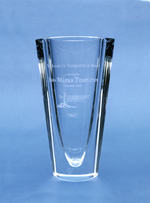 The Alexis de Tocqueville Award The Alexis de Tocqueville AwardBorn to aristocratic parents in 1805 shortly after the French Revolution, Alexis-Charles-Henri de Tocqueville was to become the greatest classical liberal thinker of the 19th century. At an early age, he distanced himself from the prejudices of his social standing and joined the struggle to establish a free society in France. His alarm at the dangers of political centralization, and his perception that tyranny could be rooted in the despotism of either an elite or a majority, led him to travel through America to observe a society that was both equalitarian and decentralized. In 1831, at the age of 26, Tocqueville spent nine months traveling the breadth of Jacksonian America to inquire into the future of French society, as revolutionary upheaval gave way to a radically decentralized civil society in America. The result was set forth in his masterful book, Democracy in America. Long recognized as a brilliant observer, Tocqueville was also a profoundly original thinker. Out of his American experience emerged a book that has had a profound impact on the thinking of the world. So uncanny, in fact, are Tocqueville's insights into economic, social and political affairs, so accurate are his predictions, that he was not merely describing the American identity, but actually helping to create it. In his further books, travels, and cultural and political affairs, he continued his devotion to advancing a society of individual liberty, where all human endeavors and institutions were voluntary and indigenous, and hence directly accountable to those affected. In short, to Tocqueville, the health of a civil society rested upon on its being based on a natural law order of individual freedom to choose and act in all economic and social matters. To honor the tradition of Tocqueville’s pioneering work, the Independent Institute awards The Alexis de Tocqueville Award to outstanding individuals in recognition of their dedication and contributions which advance our knowledge and practice of the principles of individual liberty as the foundation of free, prosperous and humane societies. More about The Alexis de Tocqueville Award |

|
 |
 |
 |
 |
 |
 |
 |
 |
 |
 |
 |
 |
 |
 |

|
| Photos by Moanalani Jeffrey | |||

